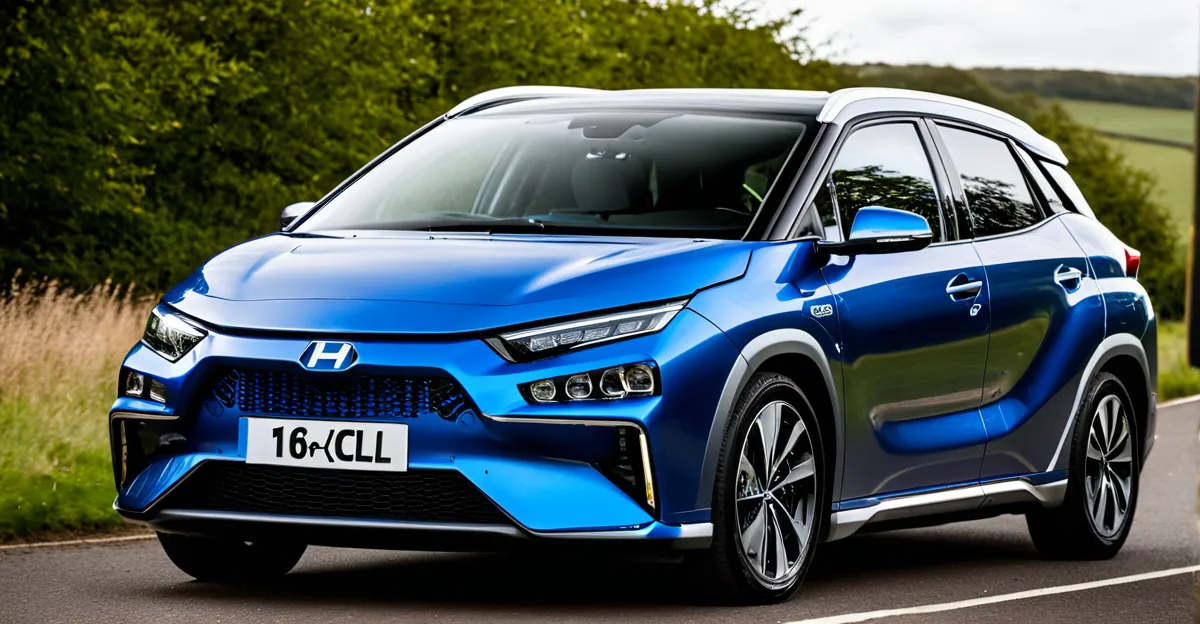Current Status of Hydrogen Fuel Cell Vehicles in the UK
The hydrogen fuel cell vehicle adoption UK remains in its early stages but shows promising growth backed by increasing market interest. According to the latest UK vehicle sales statistics, hydrogen fuel cell vehicle registrations constitute a small yet steadily rising portion of new alternative fuel vehicle sales. While numbers are modest compared to battery electric vehicles, recent figures indicate growing consumer curiosity and fleet uptake.
Key players in the UK market include manufacturers like Toyota with its Mirai model and Hyundai’s Nexo, both commonly cited in discussions about hydrogen mobility. These models are available in limited quantities and primarily targeted at early adopters and commercial fleets. The geographic distribution of hydrogen fuel cell vehicles tends to concentrate around urban hubs such as London and the South East, where infrastructure is comparatively better developed.
In parallel : What are the UK’s strategies for reducing automotive emissions?
Primary use cases in the UK focus on commercial operations, including delivery services and taxi fleets, which benefit from the faster refuelling times and extended range compared to electric alternatives. This growth trajectory reflects a cautious but increasing acceptance of hydrogen technology, emphasizing its viability alongside battery electric vehicles within the UK’s diverse zero-emission transport mix.
Government Policy and Support
Government initiatives play a pivotal role in shaping the hydrogen fuel cell vehicle adoption UK landscape. The UK hydrogen policy emphasizes the integration of hydrogen technologies within a comprehensive decarbonisation framework. The national hydrogen strategy outlines ambitious targets to expand hydrogen use in transport, among other sectors, supporting a zero-emission future.
Topic to read : How is the UK automotive industry preparing for the rise of electric cars?
Financial incentives form a core component of this support. The UK government offers various grants, subsidies, and tax incentives specifically aimed at encouraging hydrogen fuel cell vehicle uptake. These include purchase subsidies for fleet operators and research funding to reduce production costs. Incentive schemes are designed to lower the barriers hydrogren vehicle users face, improving market competitiveness relative to conventional vehicles and battery electric models.
Furthermore, the policy encourages collaborative efforts between public and private sectors to accelerate infrastructure deployment and innovation. By aligning hydrogen initiatives with broader climate goals and transport strategies, the UK government fosters an environment where hydrogen fuel cell vehicle adoption UK can progress sustainably. This policy backing is essential to maintaining momentum, addressing current technological and economic challenges, and positioning the UK as a leader in hydrogen mobility technology.
Hydrogen Refuelling Infrastructure Developments
Developing a reliable network of hydrogen refuelling stations UK is crucial for scaling hydrogen fuel cell vehicle adoption UK. Currently, the UK hosts a limited but growing number of refuelling stations, primarily concentrated around London and the South East, mirroring vehicle distribution patterns. As of recent data, fewer than 20 publicly accessible stations exist, creating challenges for widespread consumer confidence and use.
To address this, significant infrastructure investment is underway through a mix of government funding and private sector commitments. Collaborative public-private partnerships aim to expand the refuelling network strategically, linking urban centers with key transport corridors. These partnerships often involve energy companies, vehicle manufacturers, and local authorities working together to fund station construction and integrate hydrogen supply chains.
Despite progress, infrastructure deployment faces hurdles including high initial costs, regulatory approval complexity, and hydrogen production scaling. The UK hydrogen policy supports overcoming these challenges by fostering innovation in production and distribution technologies, enhancing station accessibility, and aligning infrastructure rollout with broader decarbonisation goals. A robust and accessible refuelling network is essential to unlock the full potential of hydrogen fuel cell vehicle adoption UK, ensuring that users experience convenience comparable to conventional refuelling or electric charging options.
Market Challenges Facing Hydrogen Fuel Cell Vehicles
The hydrogen fuel cell vehicle adoption UK encounters several critical hurdles. Foremost among these are cost barriers, with current HFCVs often priced significantly higher than comparable conventional or battery electric vehicles. Manufacturing expenses remain elevated due to limited production scales and costly materials such as platinum in fuel cells. This price gap inhibits broader market penetration despite government incentives.
Consumer awareness and acceptance also represent substantial market obstacles. Many potential users are unfamiliar with hydrogen technology’s benefits and practicalities, which slows adoption. Concerns about safety, reliability, and refuelling access persist among the public, despite ongoing infrastructure investments.
Supply chain challenges add complexity. Hydrogen production, particularly green hydrogen, is still scaling up. This limited supply affects both refuelling infrastructure and vehicle deployment. Furthermore, producing hydrogen in an environmentally sustainable and economically viable manner is essential to maintain the technology’s zero-emission promise.
Addressing these HFCV challenges UK demands coordinated efforts: reducing production costs, enhancing consumer education, and expanding renewable hydrogen sources. Overcoming these barriers is crucial for unlocking hydrogen fuel cell vehicles’ full potential within the UK’s evolving clean transport landscape.
Opportunities and Growth Forecasts for HFCVs
Emerging hydrogen vehicle market forecast UK data projects substantive growth driven mainly by commercial and public transport sectors. These applications exploit hydrogen’s long range and rapid refuelling advantages, positioning hydrogen fuel cell vehicles as suitable alternatives where battery electric vehicles face limitations. Fleets such as buses, trucks, and taxis show the highest opportunities for growth, benefiting from government incentives aligned with urban and regional decarbonisation targets.
Market analysts estimate that by 2030, hydrogen fuel cell vehicles could represent a notably larger share of alternative fuel vehicles in the UK. Factors influencing this include expanded hydrogen fuel cell vehicle adoption UK, scaling production efficiencies, and ongoing infrastructure investment. As hydrogen refuelling stations UK increase, consumer and fleet confidence is expected to rise, further supporting uptake.
Hydrogen’s role extends beyond transportation—its integration into the energy system contributes to UK climate commitments. This potential underpins forecasts emphasizing hydrogen mobility’s long-term importance. The alignment of policy, technology development, and market dynamics paints a positive trajectory for hydrogen transport, with future adoption trends favouring increased penetration into sectors unable to fully transition to battery electric alternatives.






